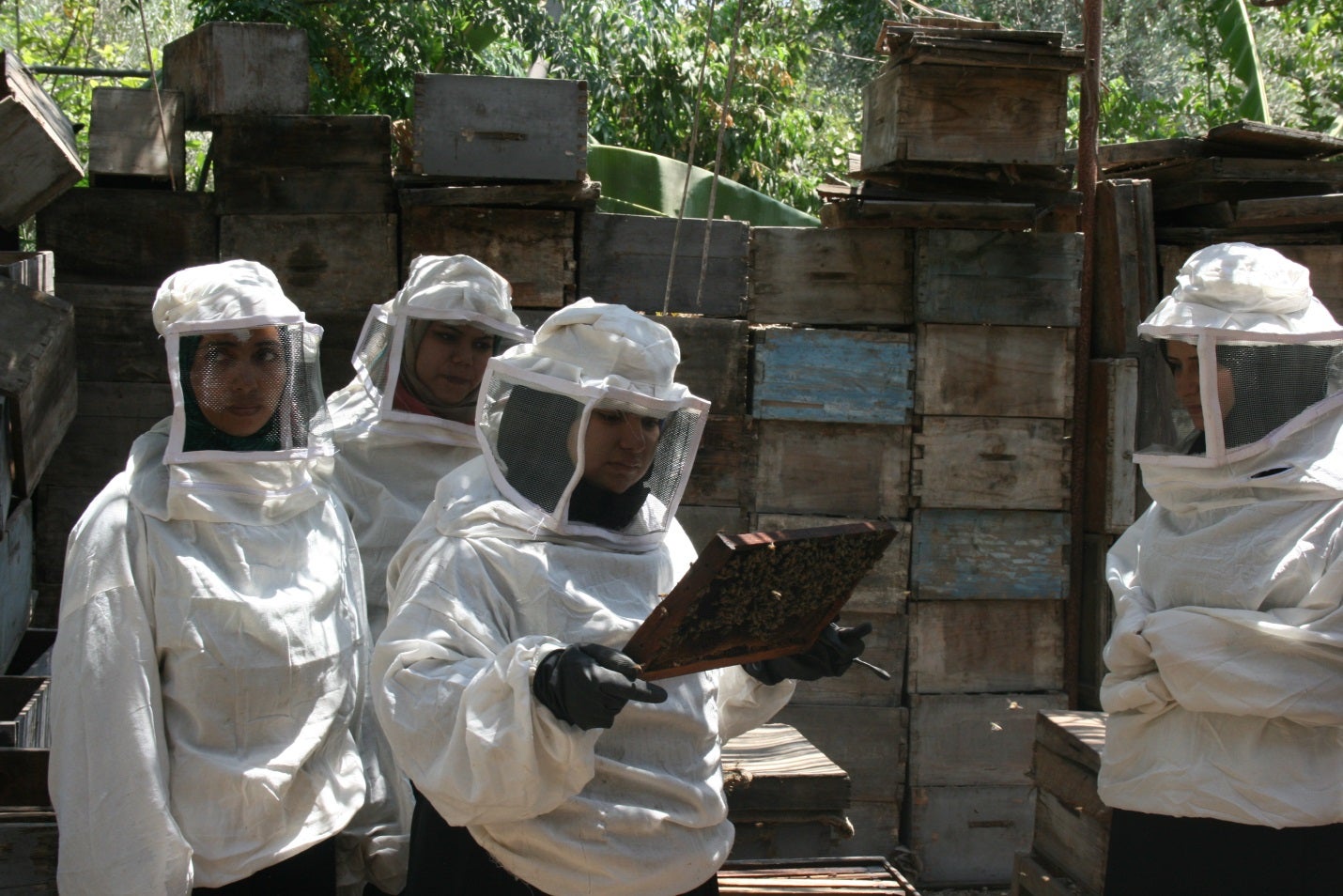
The Challenge
Although employment is usually seen as a resource for women’s empowerment, it does not automatically translate into better status and lower rates of violence for women. In fact, in some settings, if gendered norms that support men’s violence against women are not addressed, the economic empowerment of women can inadvertently propagate gender-based violence (GBV). For example, when work is a major defining factor of masculinity, working women may face a greater risk of domestic violence. Research found that organization-based programs aimed at promoting gender equity within the workplace that did not pay attention to changing work culture could induce employee backlash, resulting in hostile work environments for women, poor performance evaluations of women’s work by their male colleagues and supervisors, ultimately impeding women’s promotion prospects.
Women in Egypt face strong barriers in accessing the labor market. When employed in the private sector, women are less likely than men to remain employed, to receive training or to get promoted. Egyptian women, both employed or not, are also exposed to high levels of sexual harassment in the streets, and physical and emotional violence from their husbands, fathers and other male relatives.
While the Egyptian government has set increasing women’s economic participation as a national goal, there is no explicit policy to address gender-based violence as both a deterrent to, and a potential adverse outcome of greater gender equity in the workplace. The Gender Equity Model (GEME) Project aims to address this gap, bringing together the Egyptian Ministry of Manpower, community development non-governmental organizations (NGOs) and private firms in an innovative intervention that addresses the intersections between women’s economic empowerment and GBV.
Building on Success and Filling Gaps
The Social Research Center (SRC) of the American University in Cairo has previously partnered with the Egyptian government on two interventions targeting women’s economic empowerment. The first intervention was part of the Results Based Initiative Program, a collaboration between the World Bank, UNIFEM and the International Center for Research on Women (ICRW). The second initiative, Salheya, was a collaboration between the Ministry of Manpower (MOM), UN Women and SRC, aimed at enhancing women’s economic empowerment through a wide package of community-based interventions.
The GEME Project builds upon these two initiatives. Current political stability coupled with the Egypt 2030 vision for sustainable development, offers a timely space for the Ministry of Manpower to revitalize and extend the GEME to include a focus on preventing violence against women both in the workplace and domestically.
The GEME Intervention and Pilot Project
The new GEME model intervenes at multiple levels, including the community and private sector, targeting private firms that employ, or could employ women. The intervention will help private firms strengthen their approach to gender equity in their employment practices, and to develop a women-friendly working environment that is both productive and respectful, as well as in targeted communities on building understanding and response to domestic violence. The first step is to understand, through a baseline survey, how men and women in the targeted communities perceive gender roles and relationships, with a focus on religious and social misconceptions that promote justifying inter-spousal violence. Such misconceptions will be challenged using culturally-sensitive tailored awareness raising sessions. Esteemed religious and social leaders will be recruited to participate in these sessions.
The new GEME model:
The new GEME model will be piloted in an industrialized urban settlement in Sharqaya Governorate, and will target a number of medium-to-large private firms that have active human resources departments, are expanding in terms of capital and labor, and are aspiring to improve their public image. A community development NGO will work as a liaison between the government, the private firms, and the surrounding communities, hosting several activities aimed at raising awareness and challenging misconceptions related to domestic violence in the targeted communities.
Simultaneously, the SRC will support the Egyptian Ministry of Manpower to strengthen its gender sensitive oversight of private corporations. MOM Gender Unit (MOM-GU), an active partner in the Salheya initiative, will be the main implementing partner of the new GEME project. Through specialized training of trainers, SRC will raise the capacity of MOM-GU and other relevant ministry agents to fulfil their mandate, through monitoring the mainstreaming of gender equity and GBV protection in the firms.
As we at SRC extend our collaboration with MOM and establish new partnerships with communities and private firms, we are looking forward to the unfolding opportunities to enable positive changes in the lives of Egyptian women and men.


Join the Conversation